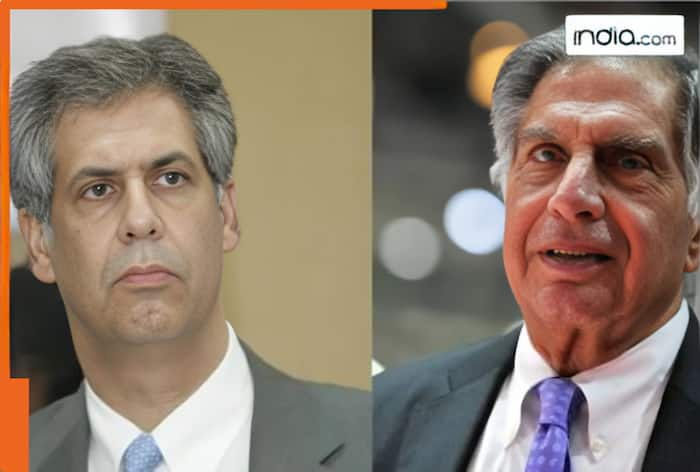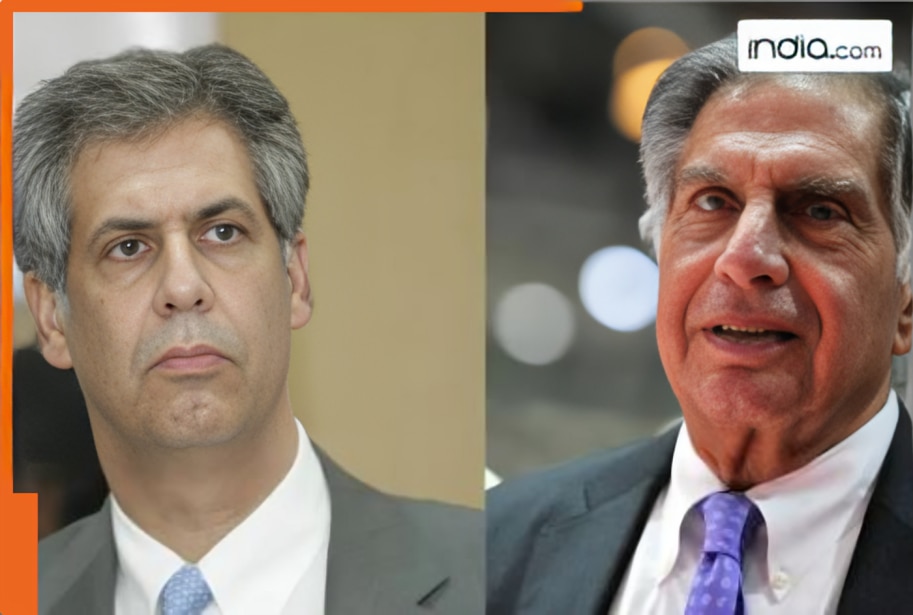The clash between Ratan Tata and Cyrus Mistry remains one of the most significant and talked about events in India’s corporate history, a new book on Tata revealed many unknown facts about tussle between them.

A new book, Ratan Tata: A Life by Thomas Mathew, published by HarperCollins, delves into the tussle that led to a high-profile separation between two powerful figures in Indian business Ratan Tata and Cyrus Mistry. The book sheds light on how differing values, business strategies, and a gradual loss of trust led to a dramatic split within the Tata Group.
Mistry, who was Noel Tata’s brother-in-law, his sister Aloo is married to Noel, was initially supported by Ratan Tata as he also considered the Pallonji Mistry family’s 18.4 per cent stake in Tata Sons, the holding company of the Tata group.
Ratan Tata Selected Cyrus Mistry
Initially, Ratan Tata endorsed Cyrus Mistry as the chairman of Tata Sons, although he had some reservations. After an extensive global search, Mistry was chosen with two specific conditions: he had legal ties with the Shapoorji Pallonji Group, where he had served as managing director, and underwent a one-year mentorship with Tata to understand the nuances of leading the conglomerate. Despite some concerns from senior group veterans, Tata believed Mistry’s British education and background would align with Tata Group’s legacy values.
Ratan Tata’s Concerns Over Cyrus Mistry Leadership
By the end of this mentorship period in 2011, Tata felt increasingly uneasy about Mistry’s leadership style. While Mistry was good at recognizing strategic risks, Tata began to sense “sharp interventions” from Mistry. It gave him a hint of potential conflicts with the values of the Tata Group. Reflecting on this time, Tata admitted, “Cyrus Mistry’s British education blinded me. I naively thought that the DNA of a person with such an impressive education would be different.”
After Mistry formally took over as chairman, he began taking the Tata Group toward sectors such as infrastructure, which Ratan Tata feared were going to bring more ethical challenges. Tata worried this shift might harm the Group’s reputation and was particularly unsettled when Mistry ceased consulting Tata Trusts on key business decisions, further eroding trust between them.
One of the most contentious moments came when Tata Power acquired Welspun’s alternative energy assets for $1.45 billion without board approval. Tata saw this decision as a major breach of protocol and considered it a “real flare-up.” This event highlighted the fundamental differences in their approaches and aggravated the already tense relationship.
To bridge the growing gap, Tata decided to take the help of Harvard Business School’s Nitin Nohria to counsel and support Mistry. Still the tension continued to build, and by October 2016, Tata had concluded that Mistry’s removal was necessary, despite anticipating criticism for such a drastic move.
Ratan Tata Removed Cyrus Mistry
Acknowledging the difficult position, Tata remarked, “Even for me, firing him this way was not our style of doing things.” Lawyers advised Tata that if Mistry’s removal wasn’t executed decisively, it could lead to prolonged legal disputes. The legal team recommended a “surgical strike” approach to prevent future litigation, ultimately leading to Mistry’s dismissal.
In hindsight, Tata felt that Mistry could have chosen to resign gracefully once it became apparent that he no longer held the board’s confidence. “Mistry should have been more dignified and graciously resigned after it became clear that he had lost the confidence of the directors,” Tata remarked. The decision took a personal toll on Tata, with Tata Sons director Venu Srinivasan commenting, “It took a lot out of him.”
Reflecting on the entire saga, Nohria expressed that Tata himself “suffered more than Cyrus in a way” due to the emotional strain of the decision. Despite the bitter end, the book portrays Tata’s choice as a challenging yet necessary one, driven by his commitment to the Group’s core values and legacy.

